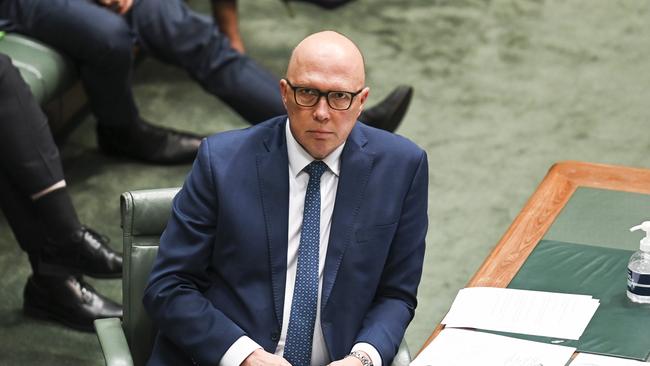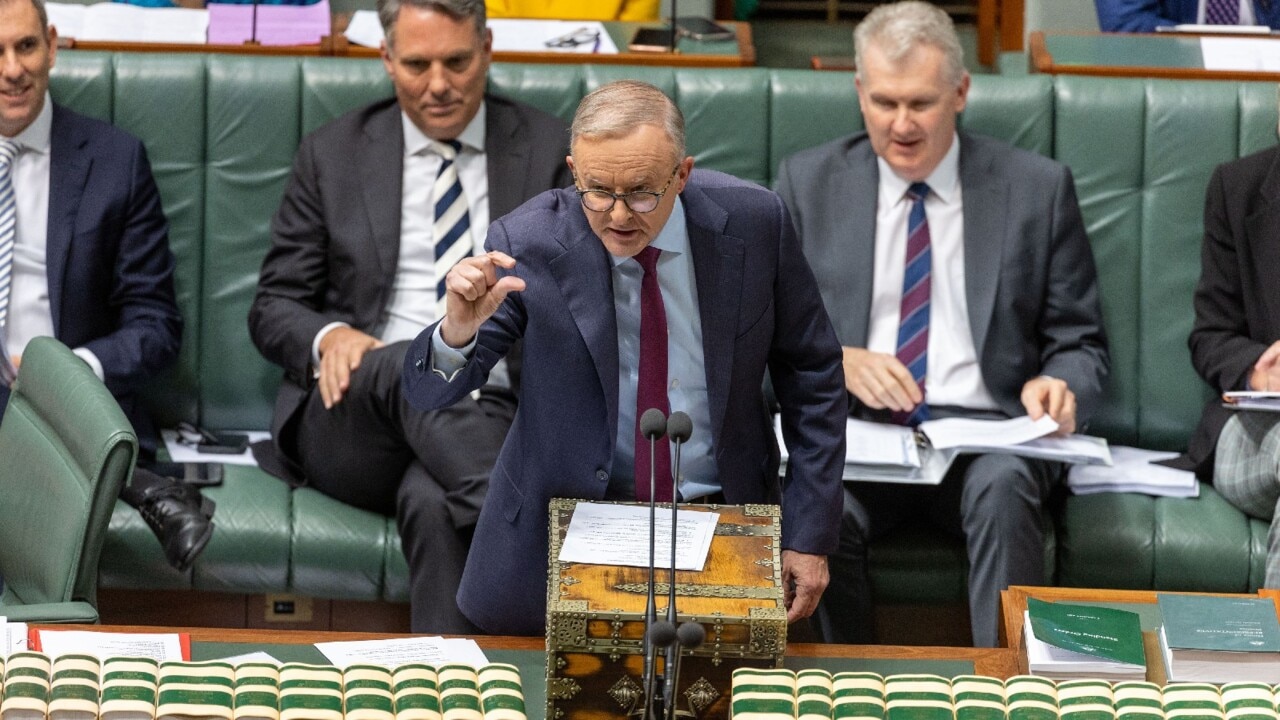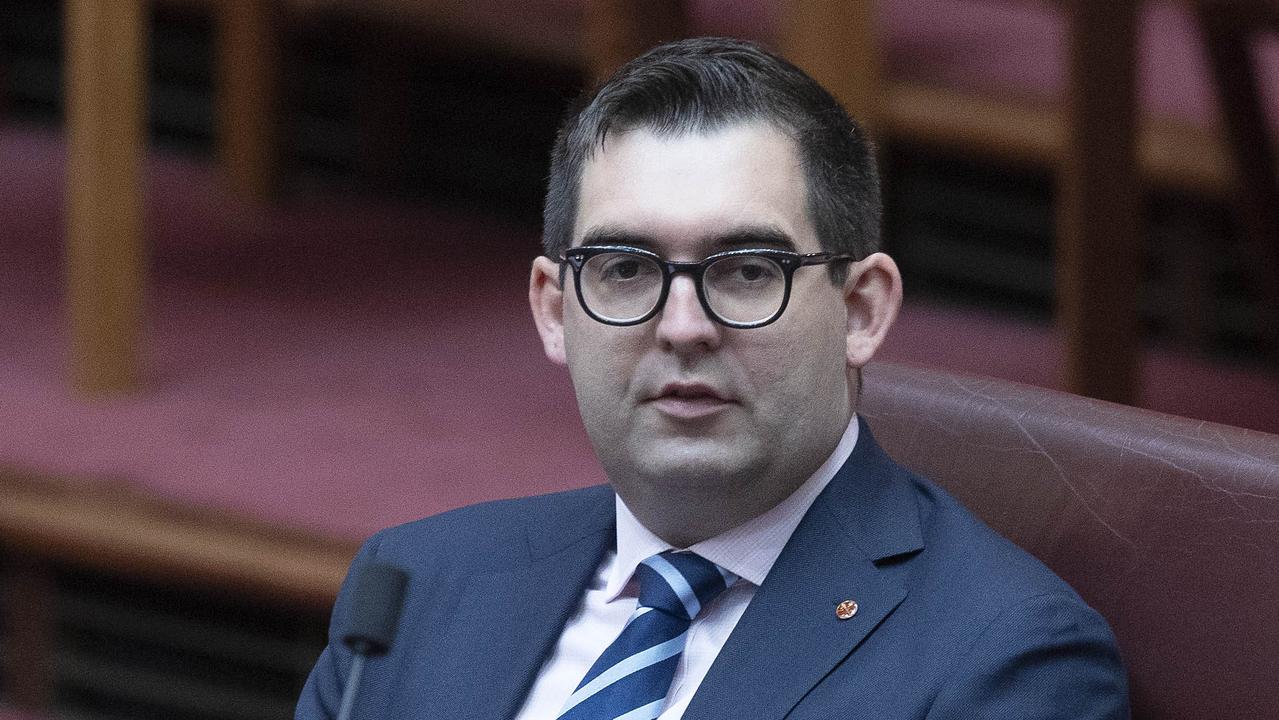Electricity price surge seized on by Coalition
Peter Dutton warns the threat of energy disruption was increasing ‘every day’ and pushed the government to examine nuclear energy.

Coalition frontbenchers have attacked the government over its promise to cut power bills by $275 after the country’s energy regulator projected Australian electricity bills to rise by up to 25 per cent from July 1.
The Australian Energy Regulator on Thursday said it would allow the default market offer to rise 19.5 per cent to 23.7 per cent, slightly above its draft ruling in March.
Peter Dutton warned the threat of energy disruption was increasing “every day” and pushed the government to examine potential benefits from nuclear energy as the nation transitioned towards renewable energy.
The Opposition Leader said Australians were struggling with a cost-of-living crisis and that energy prices were rising as a result of Labor’s policies.
“The increase that Chris Bowen announced today, I just don’t understand how people are going to pay for all of this because it comes on top of … when you go to the check out, you’ve got less and less in your trolley for the same amount of money,” Mr Dutton told 2GB.
“The likelihood of there being energy disruptions in our country is increasing every day and the energy regulator is pointing that out under the government‘s policies.”
Deputy Liberal Leader Sussan Ley said households would be $594 worse off in NSW from July 1 while residents in South Australia would lose $412 and $402 in southeast Queensland.
But Anthony Albanese rejected the criticism and blamed high power bills on unreliable coal mines and high fossil fuel prices.
The Prime Minister told Question Time that power bills were about 40 per cent lower than predicted in October last year and had been cut by Labor’s intervention into the market.
“What we have seen in the price increases today have been driven by unreliable … coal plants (and) high fossil fuel prices,” Mr Albanese said. “What we are seeing is that the contracts retailers buy for the coming financial year have fallen quite a bit after the intervention in the coal and gas markets in October last year.”
But said small businesses had been dealt a “devastating blow” by the forecast energy price spike and warned local industries risked losing their competitive edge.

“The repercussions for Australian businesses would be dire if the supply gaps are left unattended,” Mr McKellar said. “With input costs already skyrocketing, the competitive edge of local industry risks being further compromised.”
Energy and Climate Change Minister Chris Bowen said Labor’s market intervention – including price caps, a revamped safeguard mechanism and a new gas code of conduct – had prevented a 40 per cent increase in bills.
Ms Savage said the default market offer (DMO) – which puts a price cap on what retailers can charge customers who have not looked for a better deal – would provide a safety net for consumers struggling from “unjustifiably high prices”.
“We know households and small businesses continue to face cost-of-living pressures on many fronts, and that’s why it’s important the DMO provides a safety net for those who might not have shopped around for a better power deal,” Ms Savage said.
“In setting the DMO price this year, we have sought to protect consumers from unjustifiably high prices and at the same time allow retailers to offer consumers better deals than their standard plans.”



To join the conversation, please log in. Don't have an account? Register
Join the conversation, you are commenting as Logout